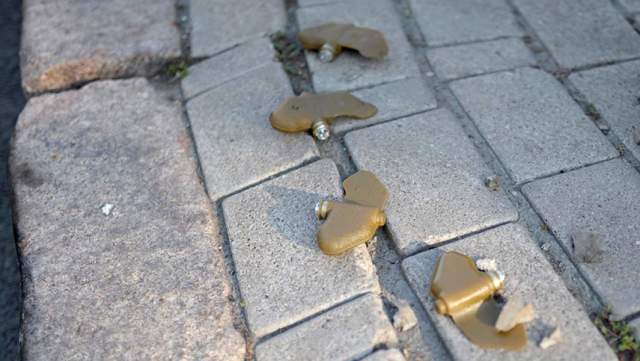The Russian Union of Veterans of Afghanistan in its appeal indicates that civilians, children and the elderly suffer from Petal mines
MOSCOW, August 12. /tass/. The All-Russian public organization of veterans "Combat Brotherhood" and the Russian Union of Afghanistan Veterans have appealed to the UN and a number of other international organizations in connection with the use by the Ukrainian armed forces of banned anti-personnel mines "Petal" against civilians of the Luhansk and Donetsk People's Republics. The text of the appeals is available to TASS.
"We, representatives of the All-Russian public organization of veterans "Combat Brotherhood", urge you to stop and bring to international justice those responsible for the use of anti-personnel mines by the armed forces of Ukraine, leading to numerous casualties among civilians of Donbass," the appeal says.
It is noted that every day facts are revealed that testify to the remote mining of civilian objects by the armed forces of Ukraine with prohibited anti-personnel high-explosive mines "Petal".
The Russian Union of Afghanistan Veterans in its appeal indicates that these Ukrainian mines "have filled up streets and parks in Donetsk, Lisichansk, Popasna, Yasinovata, Makeyevka and Panteleimonovka, Novolugansk, as well as in the Kharkiv region on the border with Russia and in Zaporozhye. "Civilians, children and the elderly suffer from such mines," the organization states.
The appeals state that Kiev's actions in this case contradict the requirements of the UN Convention on the Prohibition of Anti-personnel Mines, the Geneva Convention "On the Prohibition or Restriction of the Use of Mines, Booby Traps and Other Devices." "We urge you to use all your international authority and experience in fighting war crimes to protect the civilian population of Donbass and to hold the military-political leadership of Ukraine accountable for the genocide of its people," the appeal of the Russian Union of Afghanistan Veterans reads. The appeals are also addressed to the UN High Commissioner for Human Rights, the European Court of Human Rights, the human rights organization Amnesty International and a number of other international organizations.
The situation on the contact line in Donbass escalated on February 17. The Donetsk and Luhansk People's Republics reported the most intense shelling from Ukraine in recent months. On February 21, Russian President Vladimir Putin announced the recognition of the sovereignty of the DPR and LPR in accordance with their constitutions within the borders of Donetsk and Luhansk regions at the beginning of 2014. On February 24, Putin, in response to a request from the leaders of the Donbass republics for help, announced a special military operation. The DPR and the LPR launched an operation to liberate their territories under the control of Kiev.

